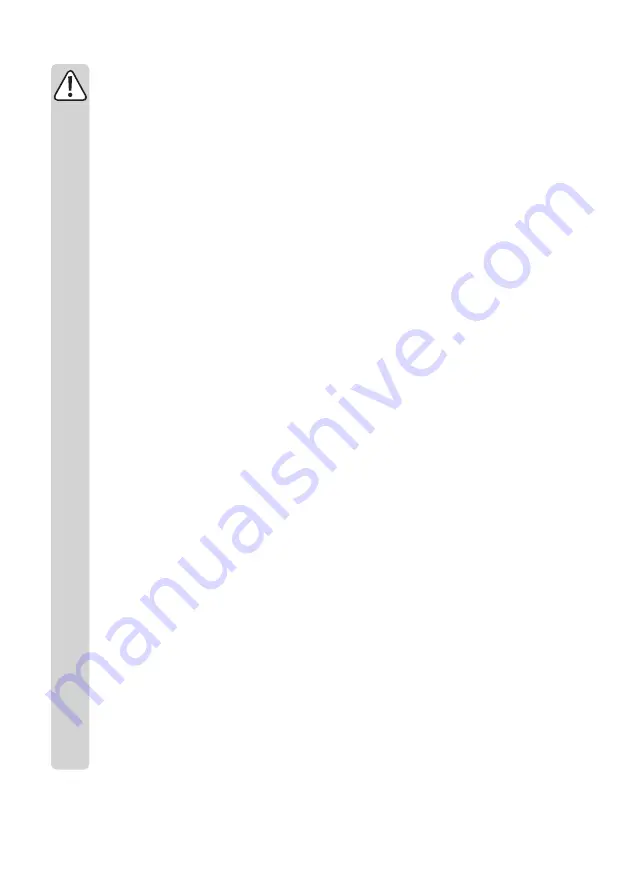
7
•
Always use suitable protection when placing the charger on valuable furniture, otherwise it may cause
scratch/pressure marks or discolour the furniture. The same applies to connected batteries.
•
Do not use the charger inside vehicles.
•
The charger must be installed, used and stored in areas that are inaccessible to children. Children may
accidentally short-circuit the rechargeable batteries, which can cause a fire or explosion. Fatal hazard!
• Do not use the charger in the immediate vicinity of strong magnetic/electromagnetic fields, transmitter
aerials or HF generators. These may affect the electronic control system.
•
Make sure that the cables are not pinched or damaged by sharp edges. Do not place any objects on
the cables.
•
Do not place any objects that contain liquid (e.g. vases or plants) on or next to the charger, battery or
cable.
Liquids that get into the interior of the charger (or inside the connection sockets) may destroy the charger
and cause a fire.
If liquid does get inside the device or the connection sockets, disconnect the charger from the power
supply. Remove the battery from the charger. Discontinue use and take the charger to a specialist repair
centre.
c) Operation
•
The charger is powered by a 11 - 18 V/DC stabilized direct voltage (e.g. an external car lead-acid battery
or a suitable mains adapter).
•
Never wear metal or conductive objects (e.g. jewellery such as necklaces, bracelets or rings) when han-
dling the charger or rechargeable batteries. This may cause a short circuit in the rechargeable battery or
charging cable, which can lead to a fire or explosion.
•
Never leave the product unattended during use. The charger comes with a range of safety mechanisms
to ensure safe use. However, malfunctions may still occur from time to time.
• Ensure there is sufficient ventilation during use; never cover the charger. Ensure that there is a sufficient
distance (min. 20 cm) between the charger and other objects, otherwise the charger may overheat and
cause a fire!
•
The charger is only designed to charge (and discharge) NiMH, NiCd, Li-ion/LiPo/LiFe/LiHV and lead-acid
batteries. Never charge other types of batteries or non-rechargeable batteries, as this may cause a fire
or explosion!
•
Always connect the cable to the charger before connecting a battery.
When disconnecting, proceed in the reverse order – disconnect the rechargeable battery from the charg-
ing cable, and then unplug the cable from the charger.
Disconnecting the battery in the wrong order may result in a short circuit in the charging cable, which
can cause a fire or explosion!
•
Do not connect several chargers together.
•
Only connect a single battery/battery pack to the charger.
•
Only use the product in temperate climates. It is not suitable for use in tropical climates. Refer to the
"Technical data" section for information on the permitted ambient conditions.








































